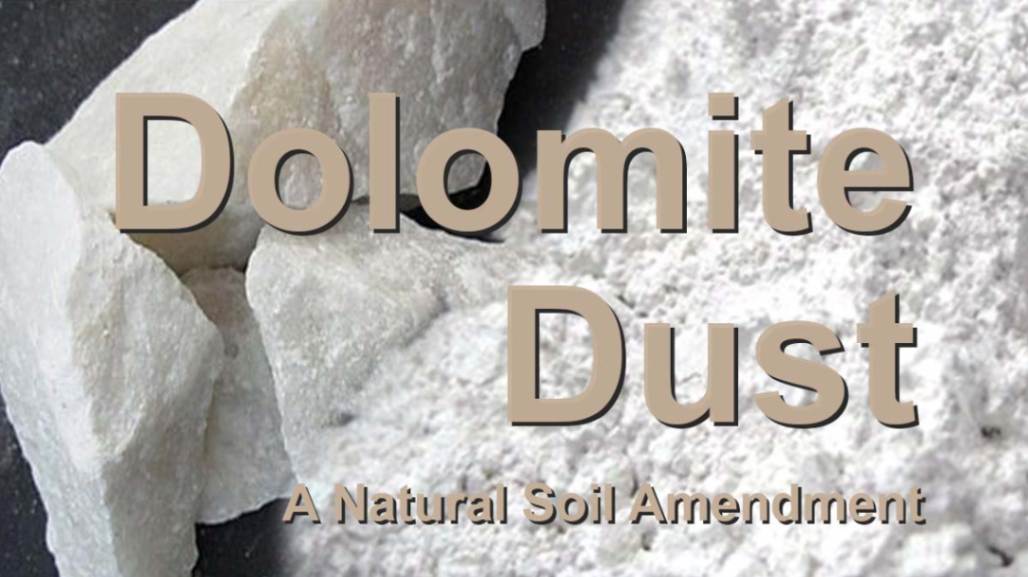Dolomite dust is a natural soil amendment that has become increasingly popular among gardeners and farmers due to its exceptional ability to enhance soil quality. Whether you are a gardening enthusiast or an agricultural professional, understanding the potential of dolomite dust can greatly improve your soil management practices. In this detailed overview we will discuss the mineral compositions, properties, typical analysis and advantages of dolomite dust for gardening.
What Is Dolomite Dust?
Dolomite dust is a natural soil amendment made from finely ground dolomite rock a sedimentary rock that contains a significant amount of both calcium carbonate (CaCO3) and magnesium carbonate (MgCO3). It is widely used in gardening and agriculture for its unique mineral composition and the benefits it provides to soil and plant health. Here’s a detailed overview of dolomite dust including its mineral compositions, properties, typical analysis and its advantages for gardening:
Mineral Compositions
Dolomite dust is primarily composed of two key minerals:
- Calcium Carbonate (CaCO3): This mineral provides a source of calcium which is essential for plant growth. Calcium plays a crucial role in cell wall structure, root development and overall plant health.
- Magnesium Carbonate (MgCO3): Dolomite is distinctive because it contains a significant amount of magnesium another essential plant nutrient. Magnesium is a central component of chlorophyll which is critical for photosynthesis and it is involved in various enzymatic processes within plants.
Properties
Dolomite rock dust is typically ground into fine particles ranging from a few microns to a few millimeters in size. It can have a light gray or white appearance and often has a fine powdery texture.
Typical Analysis
The mineral composition of dolomite dust is relatively consistent with the primary components being calcium carbonate (CaCO3) and magnesium carbonate (MgCO3). A typical analysis might include:

Dolomite Dust Benefits For Gardening
Dolomite dust offers several advantages for gardening and agriculture:
- pH Adjustment: One of the primary uses of dolomite dust is to adjust soil pH. It can raise pH in acidic soils and lower it in alkaline soils helping to maintain a neutral or slightly alkaline pH level. This is particularly valuable because many plants thrive in a pH-neutral environment.
- Calcium and Magnesium Supply: Dolomite dust serves as an excellent source of calcium and magnesium two essential nutrients for plant growth. Adequate levels of calcium and magnesium are crucial for strong cell walls, photosynthesis and overall plant vigor.
- Nutrient Availability: By adjusting pH and providing essential minerals, dolomite dust can improve the availability of other nutrients in the soil. This enhances nutrient uptake by plants and supports their overall health.
- Reducing Toxicity: In some cases, soils may contain toxic levels of elements like aluminum or manganese, which become less soluble and less harmful at higher pH levels. Dolomite dust’s pH-regulating properties can help mitigate these issues.
- Improved Soil Structure: Dolomite dust can enhance soil structure by reducing compaction and improving water retention, which promotes better root growth and overall plant health.
- Environmental Benefits: The use of dolomite dust is considered environmentally friendly, as it is a natural resource that can help reduce the need for synthetic pH-adjusting chemicals.
In summary, dolomite dust is a valuable soil amendment primarily used for adjusting soil pH, providing calcium and magnesium to plants and improving nutrient availability. It creates a more favorable environment for plant growth, enhances soil structure and can mitigate the effects of toxic elements in the soil. Gardeners and farmers often use dolomite dust as part of their soil management strategies to support healthier and more productive crops.
FAQs
Is dolomite dust safe for organic gardening?
Yes, dolomite dust is often used in organic gardening as a natural soil amendment.
Can I apply dolomite dust without a soil test?
While a soil test is recommended for precise application, you can use general guidelines for dolomite dust application in the absence of a soil test.
How long does it take to see results with dolomite dust?
The time it takes to see results may vary depending on factors like soil type and climate. Generally, improvements can be observed within a few months.
Can I use dolomite dust in container gardening?
Yes, dolomite dust can be used in container gardening to enhance the quality of potting soil.
Where can I purchase dolomite dust?
Dolomite dust is available at garden centers, agricultural supply stores and online retailers.
Also Read
Industrial Dust: Understanding its Impact and Management
Creative and Sustainable Use of Sawdust in Everyday Life

Leave a Reply